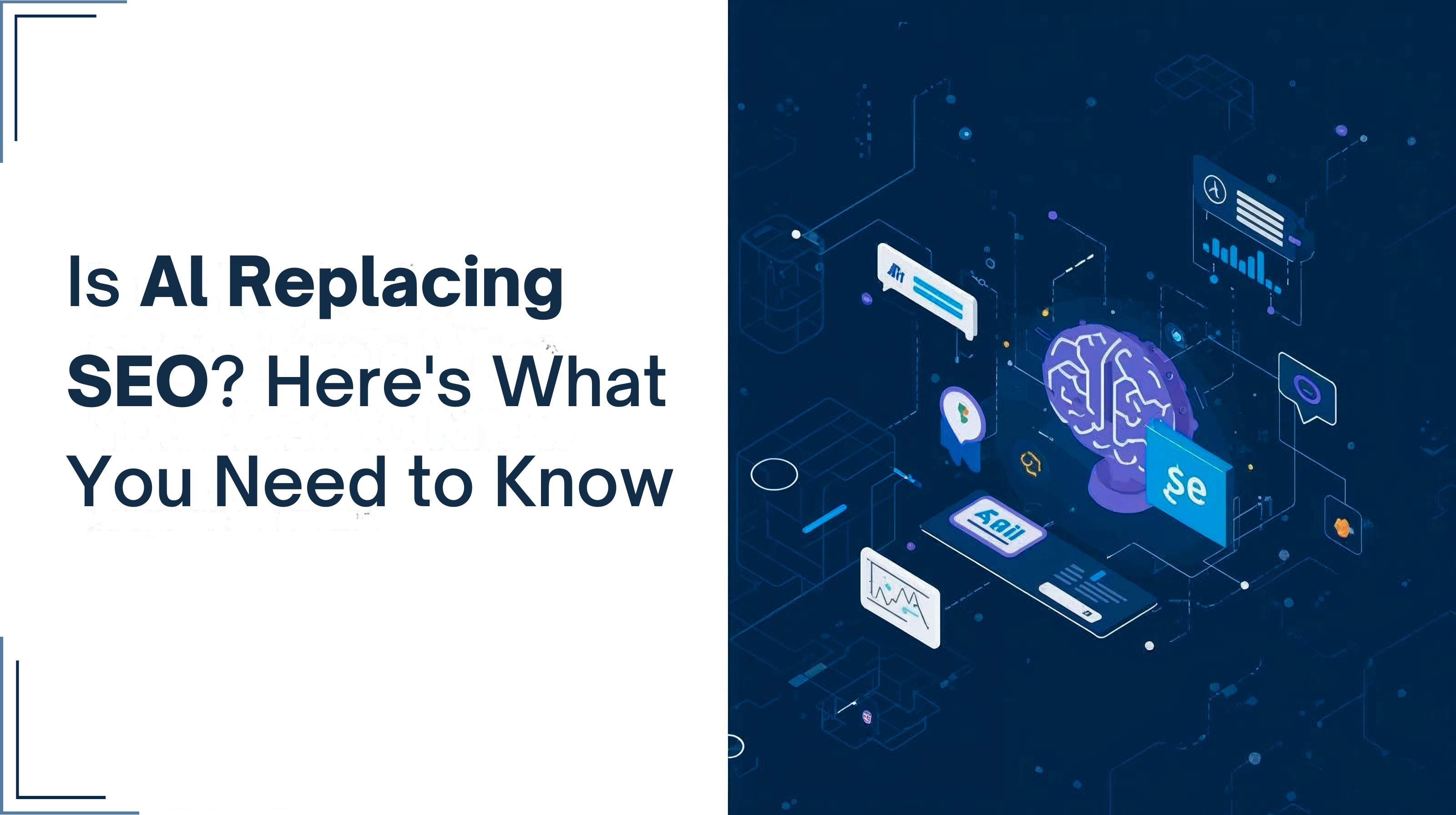With the rise of AI content tools like ChatGPT, Jasper, and Google’s own AI integrations, many business owners and marketers are asking:

The short answer is: No, but it is radically changing how SEO works. In this blog, we'll break down the role of AI in SEO, how voice search and user intent are shifting strategies, and why E-E-A-T (Experience, Expertise, Authoritativeness, Trustworthiness) is still king in Google’s eyes.
AI is now deeply embedded in every corner of SEO — from keyword research to content writing, technical audits, and even link building. Here’s how:
AI tools can now:
Suggest semantically related keywords
Analyze top-ranking content and mirror structure
But here’s the catch:
AI often lacks context, emotional intelligence, and strategic depth.
It’s great for drafting, not for leading your SEO strategy.
Google’s algorithms like RankBrain and BERT are AI-driven. They understand natural language, user intent, and context, not just keywords.
That means:
Content must answer real user questions clearly and accurately.
Instead of asking “Will AI replace SEO?”, the better question is:
How can AI enhance traditional SEO practices?
| AI Can Do | But Can’t Replace |
|---|---|
| Content drafting at scale | Strategic content planning |
| Basic keyword suggestions | In-depth keyword & competitor analysis |
| Technical audits (some tools) | Hands-on fixes and UX decisions |
| Chat-style answers (LLMs) | Real-world expertise and brand voice |
Smart SEOs are now using AI as an assistant, not a substitute.
With over strong 50% of searches now voice-based, AI-powered devices like Alexa, Google Assistant, and Siri are changing how people search.
Tip: Use tools like AnswerThePublic or People Also Ask to find real voice-style queries.
AI-generated content is everywhere now — but Google is doubling down on quality.
That’s why E-E-A-T is crucial:
| E-E-A-T Element | What It Means |
|---|---|
| Experience | Have you personally done what you’re writing about? |
| Expertise | Are you qualified or skilled in the topic? |
| Authoritativeness | Are others referencing or trusting your content? |
| Trustworthiness | Is your content accurate, safe, and verifiable? |
AI can’t demonstrate real experience or trust. That’s where human SEO content — backed by experts and proof — wins.
Google’s AI models now prioritize intent over exact keywords.
Informational: How does SEO work?
Navigational: Ahrefs blog
Transactional: Buy SEO services
Commercial Investigation: Best SEO tools for small business
Your content must match the searcher’s goal, not just the phrase.
Tip: Look at the current top 10 results for your target keyword — they tell you what Google thinks users want.
No — it’s transforming it.
AI:
Speeds up tasks
Enhances analysis
Assists with ideation
But SEO still needs:
Strategic direction
Real expertise
Human creativity
Deep understanding of your audience and market
The future of SEO is AI-assisted, not AI-replaced.
If you’re still doing SEO like it’s 2015 — chasing keywords and ignoring UX, trust, or intent — you’ll fall behind.
But if you:
Combine AI tools with expert strategy
Focus on helpful, human-first content
Align with E-E-A-T and user intent
Optimize for voice and conversational search
Then AI becomes your ally, not your competition.
At AOM Web Designer, we combine smart AI tools with real human expertise to deliver SEO that drives traffic and trust.
Let’s future-proof your SEO — together.
No. While AI can assist with tasks, SEO strategy, content quality, and E-E-A-T require human oversight.
Only if reviewed and edited for accuracy, originality, and trustworthiness.
Use natural language, questions, and aim for featured snippets or local results.
A Google guideline focused on Experience, Expertise, Authoritativeness, and Trust.
Absolutely. With proper guidance, AI tools can help save time and improve performance.